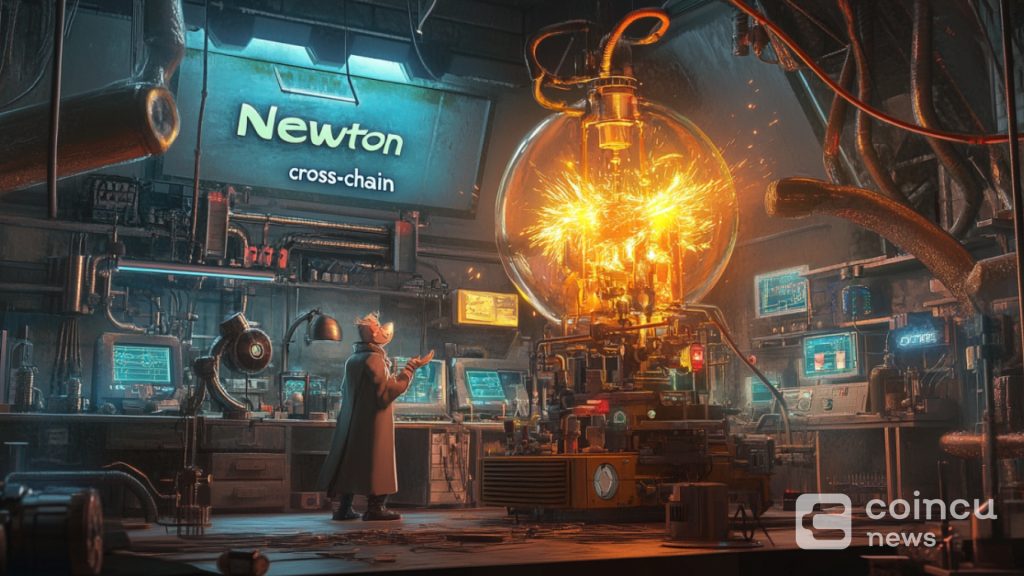Key Points:
- Polygon and Magic Labs have collaborated to launch the Newton cross-chain network, aiming to enable users to interact with dApps seamlessly across various EVM-compatible blockchains.
- Newton leverages Polygon’s AggLayer and CDK to enable developers to build dApps that work across chains without requiring users to manage multiple wallets.
Polygon and Magic Labs team up to launch Newton, a cross-chain network designed for smooth user interaction with dApps across different blockchains.

Newton: Breaking Down Barriers to Cross-Chain dApp Use
Layer-2 scaling solution Polygon (POL) recently announced a partnership with Magic Labs, a Web3 wallet infrastructure provider, to launch a new cross-chain network called Newton. The platform aims to enable users to seamlessly use dApps across multiple EVM-compatible blockchains, making the experience as smooth as browsing the web.
By leveraging Polygon’s decentralized AggLayer and Layer-2 Chain Development Kit (Polygon CDK), Newton allows developers to build dApps that operate across various chains without requiring users to hold separate wallets for each.
“Now, developers can focus on building protocols that optimize the user experience without worrying about barriers to entry… Users also only need to be concerned with transaction fees and speed, not the specific chain they are using,” stated Sean Li, co-founder and CEO of Magic Labs.
This move signifies a step towards what Magic Labs calls “chain unification,” similar to the standardization seen in traditional financial systems like ACH or SWIFT. If this technological standard becomes widely adopted, it could potentially address the issue of “blockchain fragmentation,” which currently causes liquidity dispersion and complicates the crypto user experience.
Magic Labs Integrates Self-Custody Wallet with Newton for Cross-Chain Access
Magic Labs, known for pioneering the concept of “wallet abstraction” in 2018, will also integrate its self-custodial crypto wallet into Newton. This wallet provides a single interface for users regardless of the underlying blockchain technology, giving them the impression of having “one balance” across all Ethereum-compatible networks.
Magic Labs has raised approximately $83 million across three funding rounds from 2020 to 2023, with investments from major players like PayPal, Placeholder, Lightspeed, and angel investors Naval and Balaji Srinivasan. Their technology has been utilized by dApps such as Polymarket and Helium.
AggLayer, or Aggregation Layer, is a blockchain aggregation protocol built on Ethereum. It operates on a Proof-of-Stake (PoS) model and employs Zero-Knowledge technology to ensure security and minimize latency for cross-chain interactions. Chains connected to AggLayer can maintain their sovereignty while providing a seamless experience for users.
In an interview in September, Polygon Labs CEO Marc Boiron emphasized the importance of AggLayer as a core element of Polygon 2.0. He highlighted its role in connecting blockchains to address liquidity fragmentation and unlock new opportunities for projects and developers.
| DISCLAIMER: The information on this website is provided as general market commentary and does not constitute investment advice. We encourage you to do your own research before investing. |






















